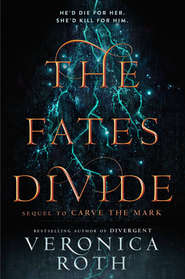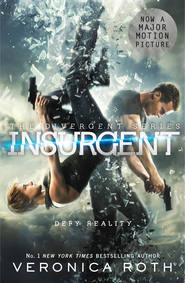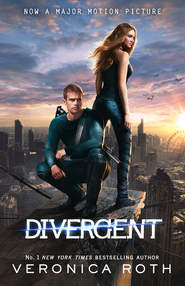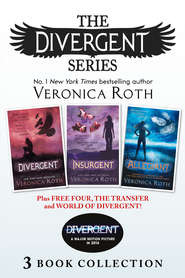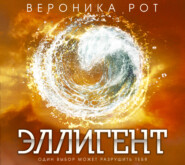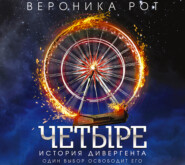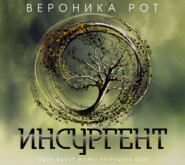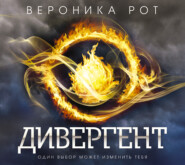По всем вопросам обращайтесь на: info@litportal.ru
(©) 2003-2025.
✖
The End and Other Beginnings: Stories from the Future
Настройки чтения
Размер шрифта
Высота строк
Поля
“So your plan is to just waste a perfectly good marshmallow,” Matt said to me.
“Well, do you know what a marshmallow becomes when you cook it too long?” I said. “No. Because you can never resist them, so you’ve never let it get that far.”
“Some questions about the world don’t need to be answered, you know. I’m perfectly content with just eating the toasted marshmallows for the rest of my days.”
“This is why you had to drop art.”
“Because I’m not curious about charred marshmallows?”
“No.” I laughed. “Because you can be perfectly content instead of … perpetually unsettled.”
He raised his eyebrows. “Are you calling me simpleminded? Like a golden retriever or something?”
“No!” I shook my head. “I mean, for one thing, if you were a dog, you would obviously be a labradoodle—”
“A labradoodle?”
“—and for another, if we were all the same, it would be a boring world.”
“I still think you were being a little condescending.” He paused, and smiled at me. “I can give it a pass, though, because you’re obviously still in your idealistic-adolescent-art-student phase—”
“Hypocrisy!” I cried, pointing at him. “The definition of ‘condescending’ may as well be telling someone they’re going through a phase.”
Matt’s response was to seize the stick from my hand, blow out the flames of the disintegrating marshmallow, and pull it free, tossing it from hand to hand until it cooled. Then he shoved it—charred, but still gooey on the inside—into his mouth.
“Experiment over,” he said with a full mouth. “Come on, let’s go.”
“Go where?”
He didn’t answer, just grabbed me by the elbow and steered me away from the bonfire. When we had found the path just before the rocks, he took off running, and I had no choice but to follow him. I chased him up the path, laughing, the warm summer air blowing over my cheeks and through my hair.
Then I remembered.
He was leading us to the dune cliff—a low sand cliff jutting out over the water. It was against beach rules to jump off it, but people did it anyway, mostly people our age who hadn’t yet developed that part of the brain that thought about consequences. A gift as well as a curse.
I watched as Matt sprinted off the cliff, flailing in the air for a breathless moment before he hit the water.
I stopped a few feet from the edge. Then I heard him laughing.
“Come on!” he shouted.
I was more comfortable just watching antics like these, turning them into a myth in my mind, a legend. I watched life so that I could find the story inside it—it helped me make sense of things. But sometimes I got tired of my own brain, perpetually unsettled as it was.
This time I didn’t just watch. I backed up a few steps, shook out my trembling hands, and burst into a run. I ran straight off the edge of the cliff, shoes and jeans and all.
A heart-stopping moment, weightless and free.
Wind on my ankles, stomach sinking, and then I sliced into the water like a knife. The current wrapped around me. I kicked like a bullfrog, pushing myself to the surface.
“Now that’s what I’m talking about,” Matt said as I surfaced.
As our eyes met across the water, I remembered where I really was. Lying in a hospital room. Unaware of how much time had actually passed.
“I like this memory, too,” he said to me, smiling, this time in the visitation instead of the memory. “Except for the part when I realized my dad’s old wallet was in my pocket when I jumped. It was completely ruined.”
“Oh, shit,” I breathed. “You never said.”
He shrugged. “It was just a wallet.”
That was a lie, of course. No object that had belonged to Matt’s father was “just” something, now that he was gone.
He said, “So this is your favorite memory?”
“It’s … I …” I paused, kicking to keep myself afloat. The water was cool but not cold. “I never would have done something like this without you.”
“You know what?” He tilted back, so he was floating. “I wouldn’t have done it without you, either.”
“It’s your turn,” I said. “Favorite memory. Go.”
“Okay. But don’t forget, you asked for this.”
I had always thought he was cute—there was no way around it, really, short of covering my eyes every time he was there. Especially after he cut the floppy mess of hair short and you could see his face, strong jaw and all. He had a dimple in his left cheek but not his right one. His smile was crooked. He had long eyelashes.
I might have developed a crush on him, if he hadn’t been dating someone when we first became friends. And it seemed like Matt was always dating someone. In fact, I counseled him through exactly three girlfriends in our friendship: the first was Lauren Gallagher, a tiny but demanding gymnast who drove him up the wall; the second, Anna Underhill, my friend from first grade, who didn’t have anything in common with him except an infectious laugh; and the third, our mutual acquaintance Tori Slaughter (an unfortunate last name), who got drunk and made out with another guy at a Halloween party shortly after their fifth date. Literally—just two hours after their fifth date, she had another guy’s tongue in her mouth. That was the hardest one, because she seemed really sad afterward, so he hadn’t been able to stay mad at her, even while he was ending things. Matt never could hang on to anger, even when he had a right to; it slipped away like water in a fist. Unless it had to do with me. He had been angry at me for longer than he was ever angry with a girlfriend.
For my part, I had had a brief interlude with Paul (nickname: Paul the Appalling, courtesy of Matt) involving a few hot make-out sessions on the beach one summer, before I discovered a dried-up-booger collection in the glove box of his car, which effectively killed the mood. Otherwise, I preferred to stay solitary.
Judging by what Anna had told me while they were dating, girls had trouble getting Matt to stop joking around for more than five seconds at a time, which got annoying when they were trying to get to know him. I had never had that problem.
I heard rain splattering and the jingle of a wind chime—the one hanging next to Matt’s front door. My hair was plastered to the side of my face. Before I rang the bell, I raked it back with my fingers and tied it in a knot. It had been long then, but now its weight was unfamiliar. I was used to it tickling my jaw.
He answered the door, so the screen was between us. He was wearing his gym shorts—his name was written on the front of them, right above his knee—and a ragged T-shirt that was a little too small. He had dark circles under his eyes—darker than usual, that is, because Matt always had a sleepy look to his face, like he had just woken up from a nap.
He glanced over his shoulder to the living room, where his mother was sitting on the couch, watching television. He drew the door shut behind him, stepping out onto the porch.
“What is it?” he said, and at the sound of his voice—so hollowed out by grief—I felt a catch in my own throat. In the memory as well as in the visitation. It never got easier to see him this way.
“Can you get away for an hour?” I said.
“I’m sorry, Claire, I’m just … not up for hanging out right now.”
“Oh, we’re not going to hang out. Just humor me, okay?”
“Fine. I’ll tell Mom.”
A minute later he was in his old flip-flops (taped back together at the bottom), walking through the rain with me to my car. His gravel driveway was long. In the heat of summer the brush had grown high, crowding the edge, so I had parked on the road.
Matt’s house was old and small and musty. He’d had a bedroom once, before his grandmother had to move in, but now he slept on the couch in the living room. Despite how packed in his family was, though, his house was always open to guests, expanding to accommodate whoever wanted to occupy it. His father had referred to me as “daughter” so many times, I had lost track.







